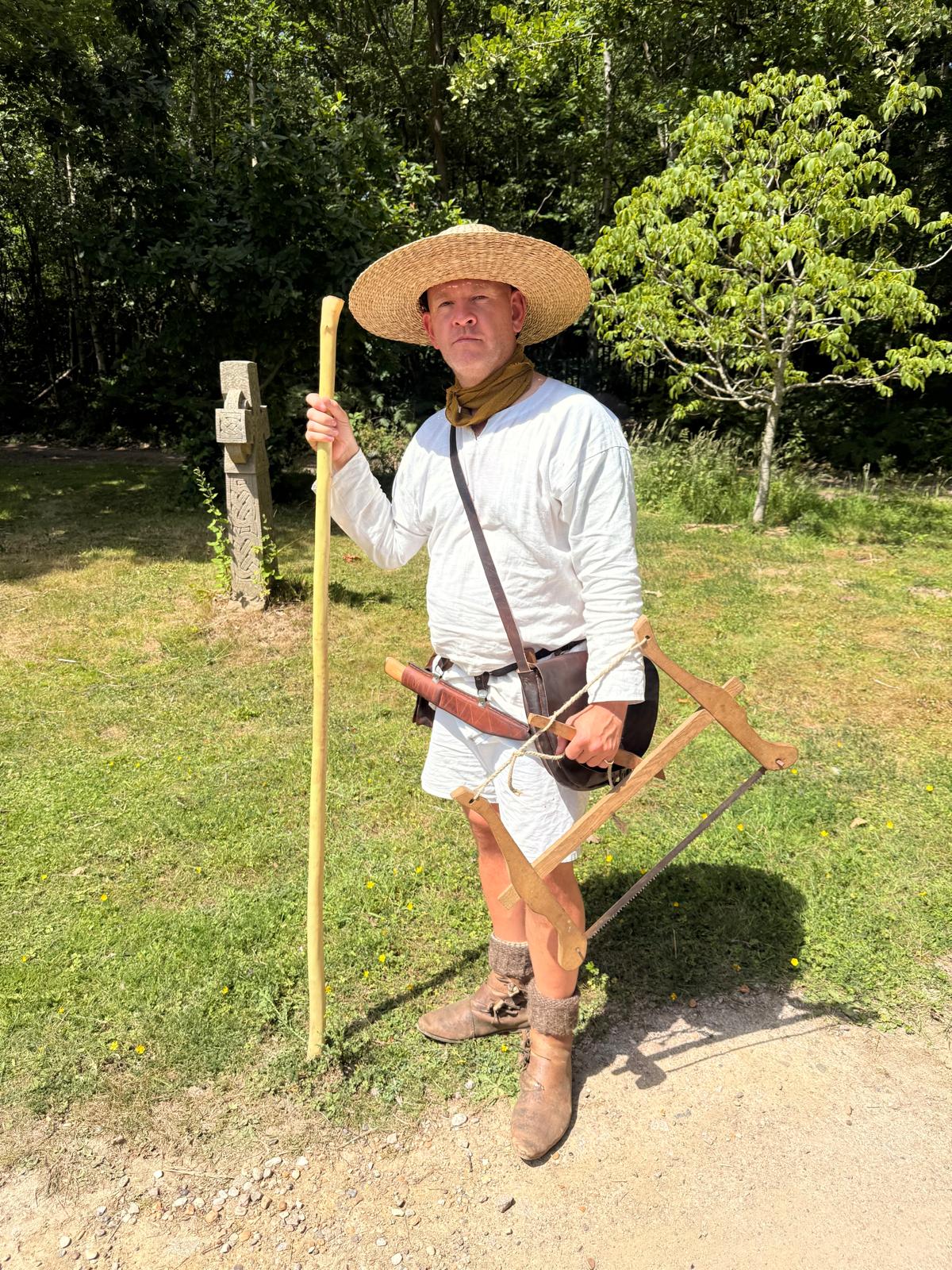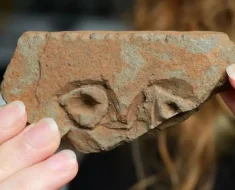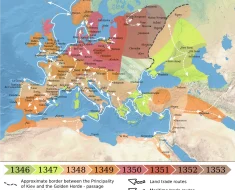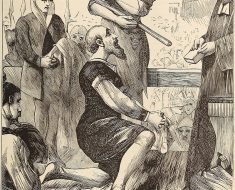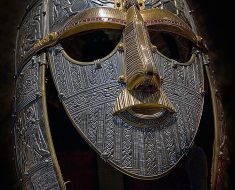In the medieval countryside, villages were often isolated and had little in the way of permanent shops.
Certainly nothing like we have today!
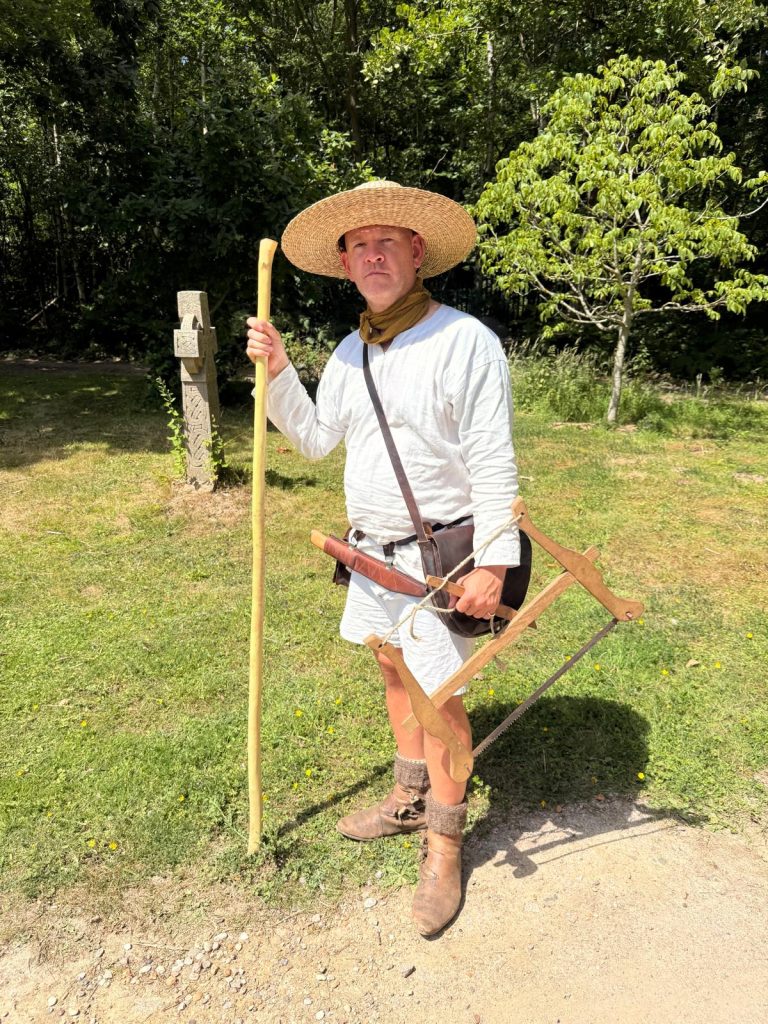
For goods and services people couldn’t produce themselves, they relied on traveling tradesmen.
These workers moved from village to village, carrying tools or wares, sometimes working for food and shelter, sometimes for large sums of money!
Tradesmen you could expect to see were…
The Tinker
The tinker came through a few times a year. He repaired metal household items such as pots, pans, tools, and locks. He carried a small anvil, a brazier, and basic metalworking tools. People brought him anything broken that they couldn’t replace easily. He set up in the middle of the village and worked there for a day or two.
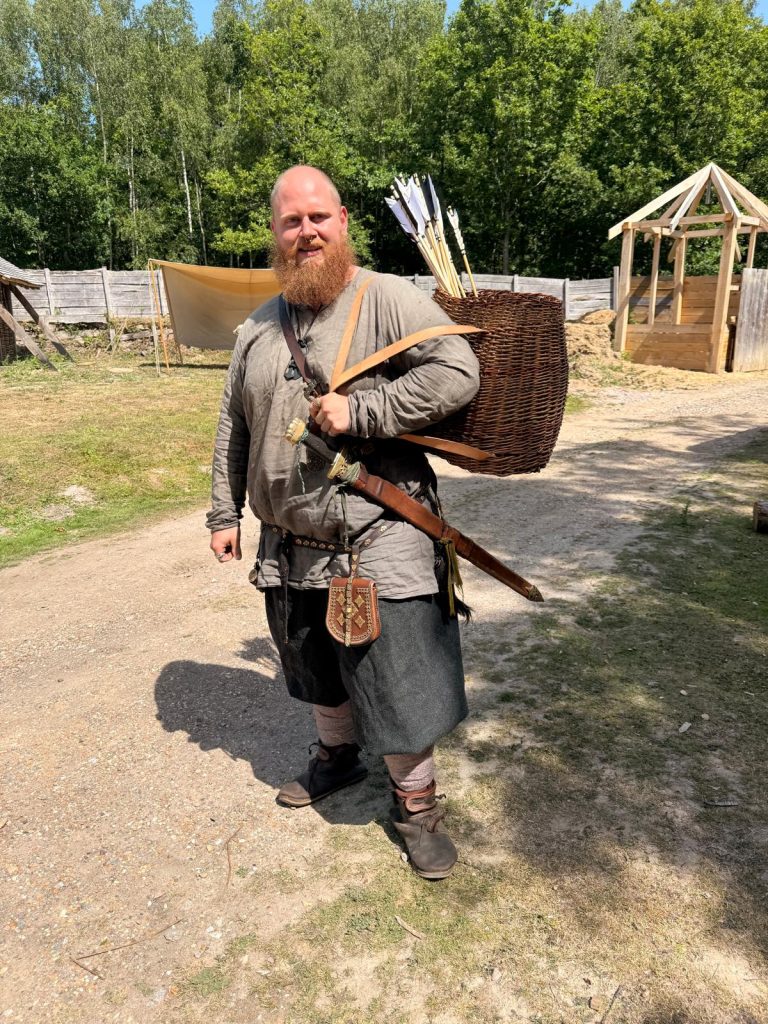
The Peddler
Peddlers sold small goods that weren’t made locally. Needles, thread, combs, ribbons, buttons, small mirrors, and sometimes dried herbs or spices. They carried everything in a large pack with the women in the village usually their main customers. Peddlers also brought news from other towns, which made them especially welcome in isolated places.
The Tailor
Itinerant tailors offered to mend or make clothes using the fabric villagers already had. They carried scissors, needles, chalk, and measuring tape, and often stayed in one village for a few days at a time. Most villages couldn’t afford or support a full-time tailor, so traveling ones filled the gap.
The Cobbler
Cobbler visits were less frequent, but still important. They repaired worn shoes and boots and occasionally made new ones. He brought a small kit…wooden forms, awls, thread, leather, and hobnails. He worked outside or in someone’s shed. Shoe repair was practical and necessary…new shoes were expensive and hard to come by.
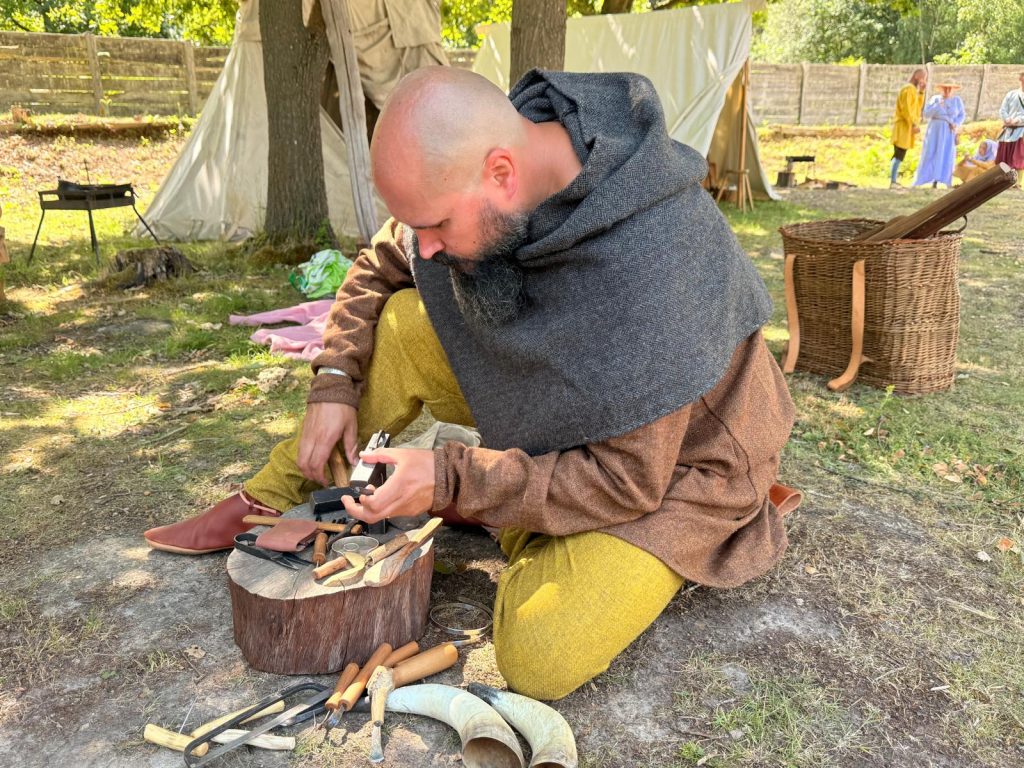
The Carpenter
Carpenters who traveled were usually seasonal. After storms or during building periods, a skilled carpenter might walk from village to village offering repairs to roofs, doors, carts, or tools.
They brought saws, hammers, chisels, and carried their own nails or wooden pegs. They stayed as long as there was work, then moved on.
The Knife Grinder
Some more specialized tradesmen…like knife grinders…came through with equipment mounted on carts. These were often pushed or pulled by hand or with a mule. They sharpened blades, scissors, and tools for a small fee. People would wait for them, as their tools had to last as long as possible.
These tradesmen often worked alone or in pairs.
They stayed in barns, slept outside, or were given a spot by villagers. Some had licenses or letters from local lords to protect them from being mistaken as vagrants.
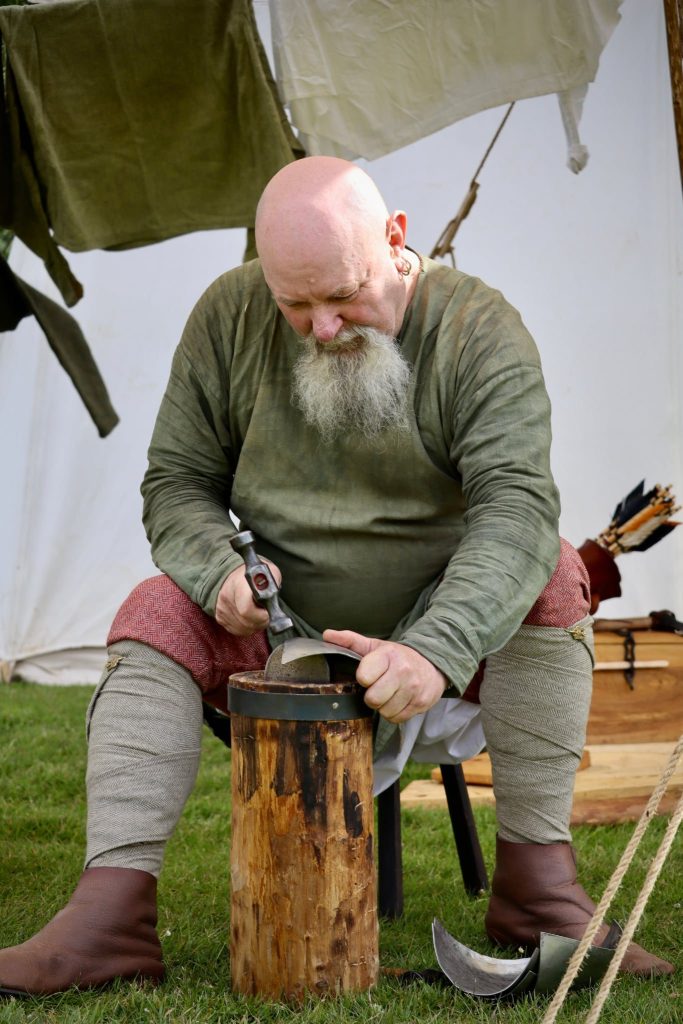
Others traveled without permission and had to be careful not to be turned away. Travel was slow, roads were rough, and dangers like thieves or illness were constant, but without these tradesmen, most rural villages would have suffered without these essential goods and services.
So next time you nip to B&Q for something… try walking.
It’ll give you a good idea what it would have been like!
